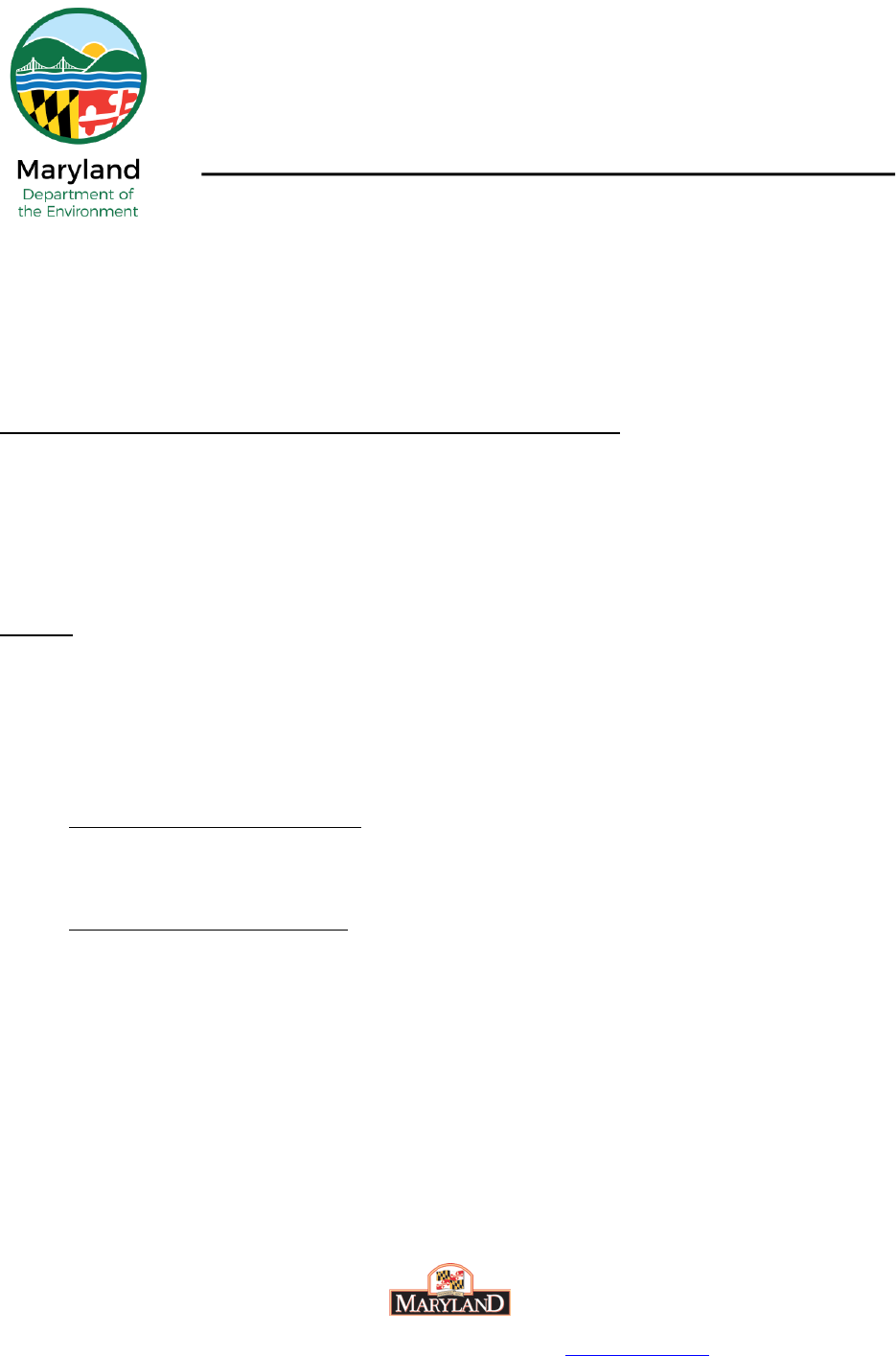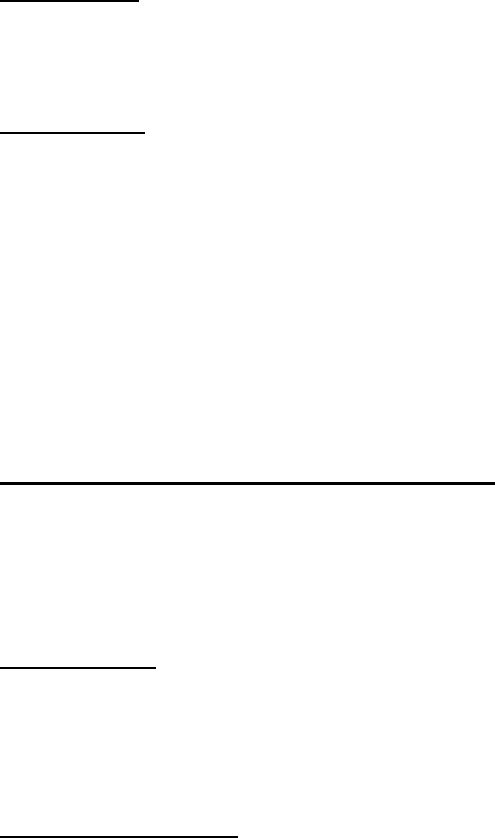
FACTS ABOUT:
UNDERGROUND STORAGE TANK COMPLIANCE
TESTING SCHEDULE
All underground storage tank (UST) system components are to be tested at installation and upon
repair. The following testing schedule is a general guideline for when subsequent testing is
needed. Your facility may or may not have all of the tank system components listed below or be
required to test all of them.
THE FOLLOWING TESTING SCHEDULE IS FOR:
• Motor Fuel Tanks
• Used Oil Tanks
• Bulk Heating Oil Tanks
• Emergency Generator Tanks (installed on or after March 1, 2008)
Annual
• Spill Catchment Basin test (fill, remote fill, Stage I)
o Double wall Spill Catchment Basin must be tested per manufacturer specifications
or in accordance with PEI RP 1200.
• Piping Precision Tightness test for Pressurized Piping equipped with:
Mechanical Line Leak Detector
o Unless maintaining monthly piping release detection in accordance with COMAR
26.10.05.02D(2)(b)(ii).
Electronic Line Leak Detector
o Unless electronic line leak detector is performing daily, weekly, and monthly test in
accordance with COMAR 26.10.05.02D.(2)(b)(ii). Must maintain a record of
monthly leak detector line test.
• Automatic Tank Gauge System certification (includes functional test of sump sensors)
• Line Leak Detector test (mechanical and electronic)
• Cathodic Protection test for Metal Piping (including flex connectors)
• Field installed Cathodic Protection test for Metal Tanks
o For steel tanks that have had supplemental anodes or impressed current system
installed
Maryland Department of the Environment
1800 Washington Boulevard | Baltimore, MD 21230-1718 | www.mde.maryland.gov
410-537-3000 | 800-633-6101 | TTY Users: 800-735-2258
Oil Control Program | April 2016

Every 2 Years
• Piping Precision Tightness test for U.S. Suction
o Unless maintaining monthly piping release detection in accordance with COMAR
26.10.05.02D.(2)(b)(ii)
• Helium test for existing Gasoline USTs
o Only when located in High Risk Groundwater Use Areas or Well Head Protection
Areas
Every 3 Years
• Factory installed Cathodic Protection test for Metal Tanks
Every 5 Years
• Containment Sump test (tank top, vent, dispenser, piping transition, etc.)
o Double wall Containment Sumps must be tested per manufacturer specifications or
in accordance with PEI RP 1200.
• Secondary Piping Tightness test
o For double wall piping installed or replaced on or after January 12, 2009.
• Tank Precision Tightness test
o Only for tanks greater than 550 gallons and less than 2,000 gallons using manual
tank gauging as primary method of release detection.
• Impressed Current Cathodic Protection assessment
o Only for UST systems with impressed current cathodic protection.
THE FOLLOWING TESTING SCHEDULE IS FOR:
• Heating Oil Tanks for Direct Consumptive Use
• Emergency Generator Tanks (installed prior to March 1, 2008)
Annual
• Spill Catchment Basin test (fill, remote fill)
o Double wall Spill Catchment Basin must be tested per manufacturer specifications
or in accordance with PEI RP 1200.
• Cathodic Protection test for Metal Piping (includes flex connectors, supply & return,
vent, etc.)
o Unless installed prior to March 15, 1985.
• Field installed Cathodic Protection test for Metal Tanks
Page 2 of 3

o For steel tanks that have had supplemental anodes or impressed current system
installed
o Unless installed prior to March 15, 1985.
Every 3Years
• Factory installed Cathodic Protection test for Metal Tanks
o Unless installed prior to March 15, 1985.
Every 5 Years
• Containment Sump test (tank top, vent, dispenser, piping transition, etc.)
o Double wall Containment Sumps must be tested per manufacturer specifications or
in accordance with PEI RP 1200.
• Tank Precision Tightness test
o Tanks are to be tested at installation, 15 years of age, and every 5 years thereafter
• Piping Precision Tightness test (Pressurized, Safe Suction and U.S. Suction)
o Piping is to be tested at installation, 15 years of age, and every 5 years thereafter
RECORD KEEPING REQUIREMENTS
• Owners and Operators are required to maintain records of all UST compliance testing.
• Records should be maintained onsite or readily available upon request from the
Department.
CONTACTS
For further information on testing requirements for UST systems, please contact the Oil Control
Program at (410) 537-3442 or (800) 633-6101 x3442. To report oil spills call 1-866-633-4686.
Available 24 hours a day.
**DISCLAIMER**
This fact sheet is intended only as guidance to aide UST owners, operators, and Maryland
Certified UST Technicians in understanding and implementing the Department’s regulatory
requirements. It is not intended to supplement or replace any statutory or regulatory
requirements and does not create any enforceable rights at law or equity. In the event of any
inadvertent conflict between this fact sheet and the Department’s statutes and regulations, the
statutes and regulation shall control.
Page 3 of 3
